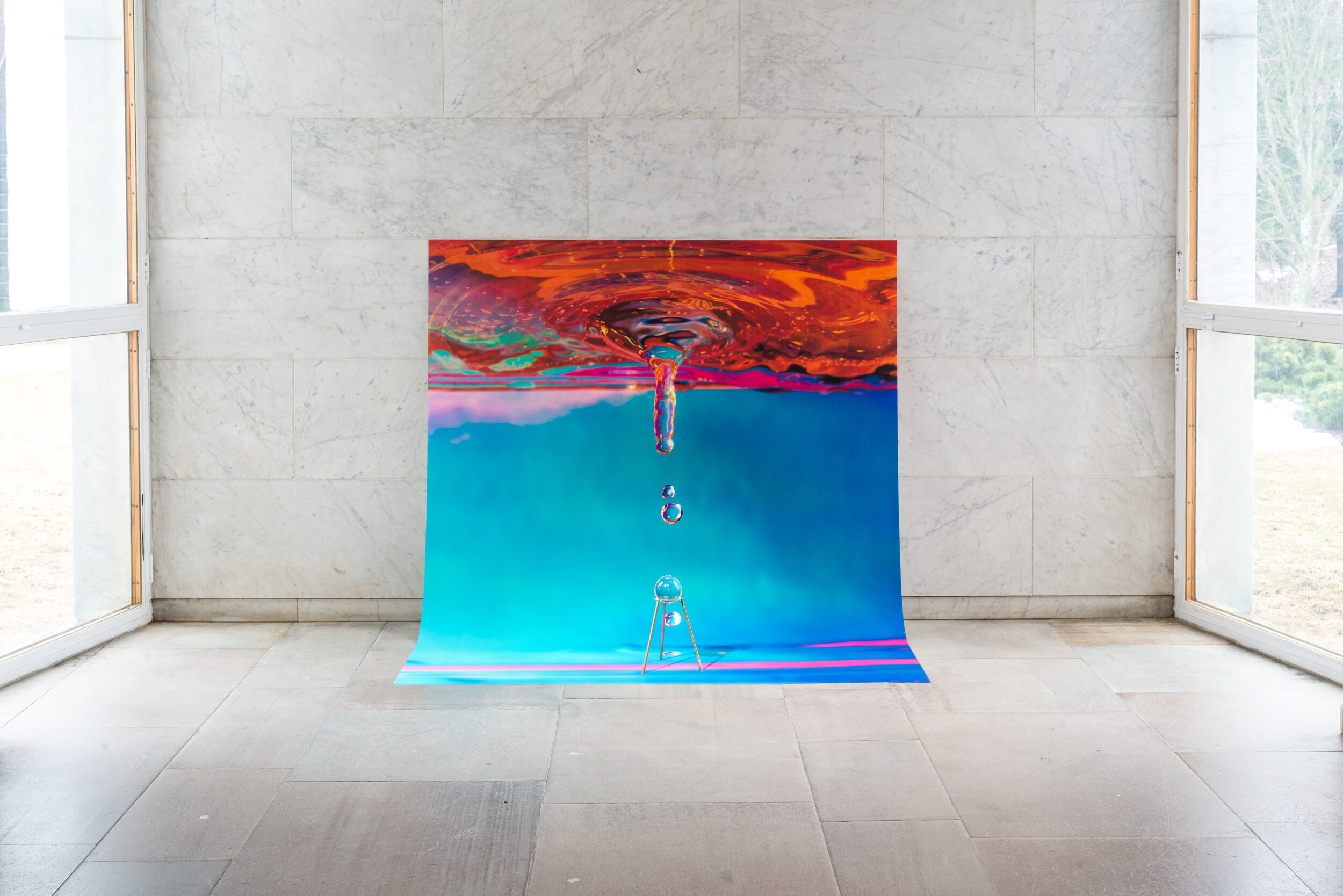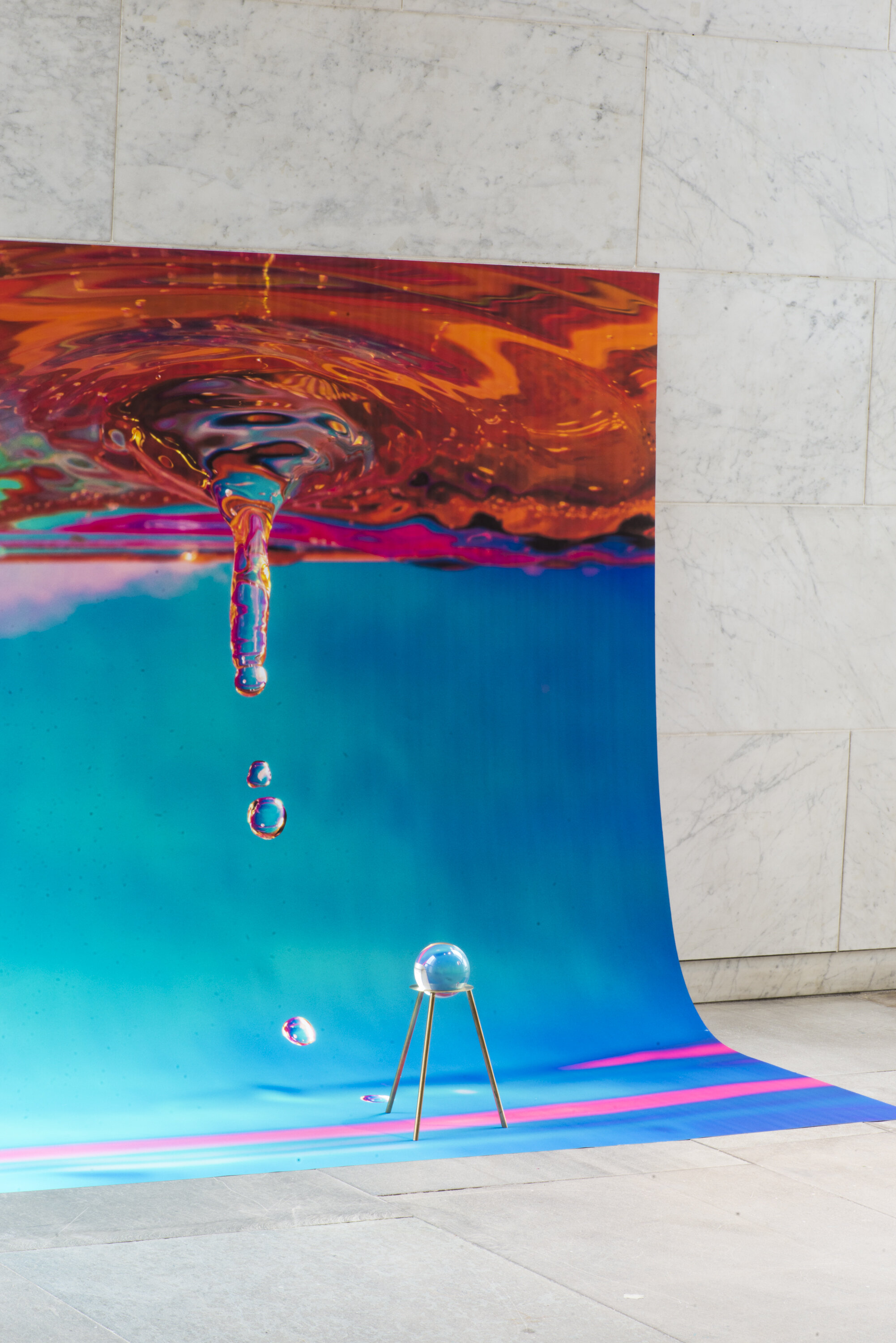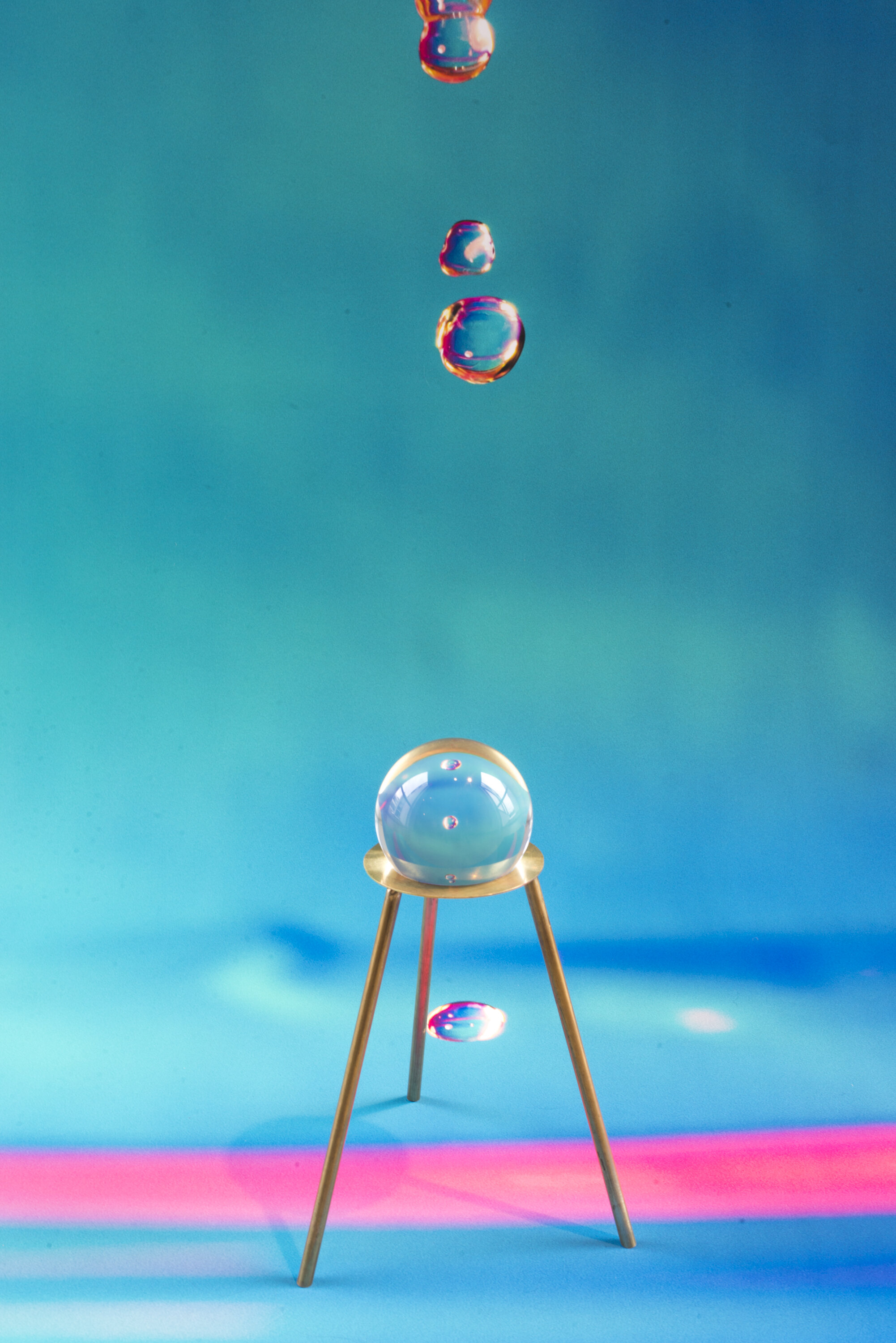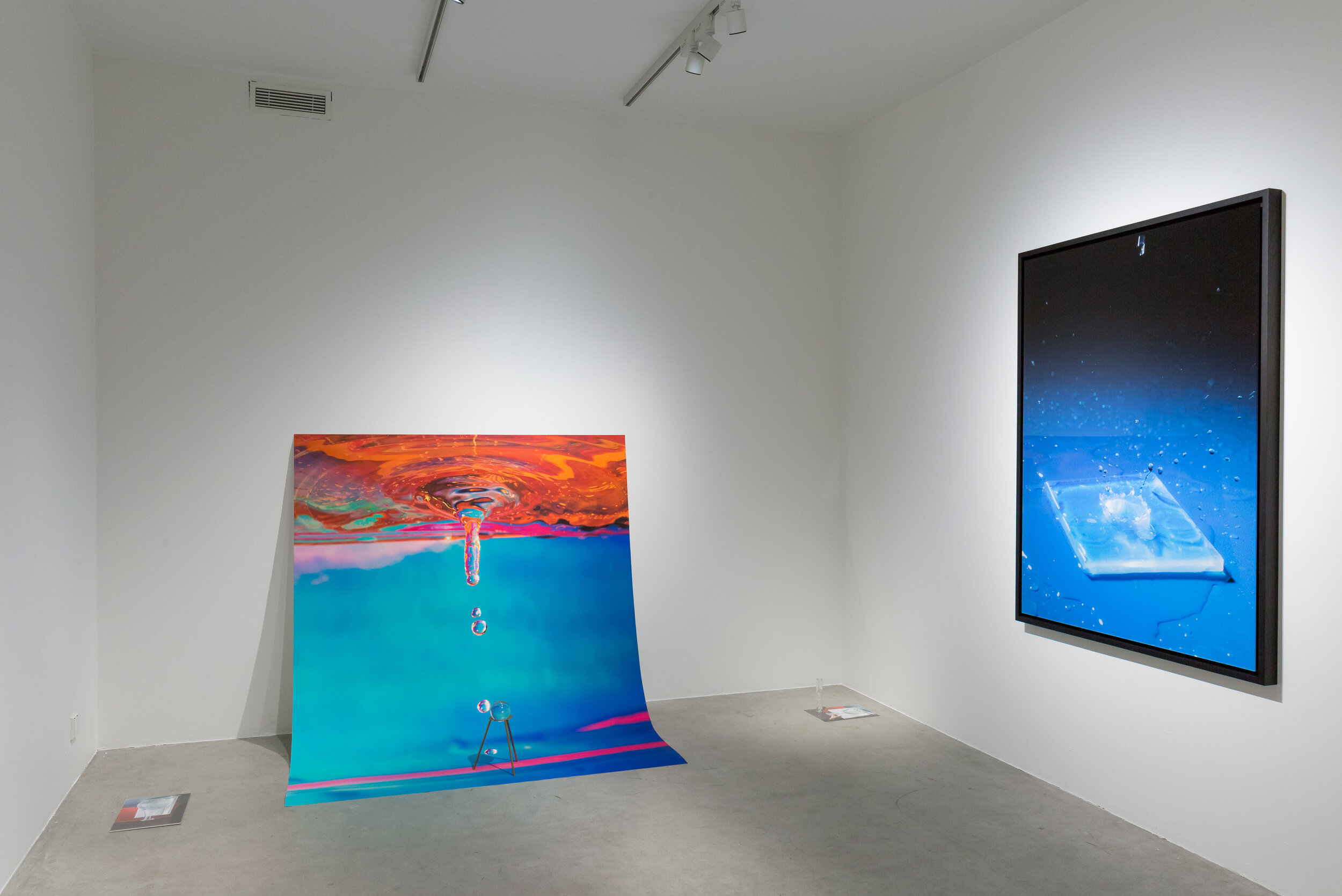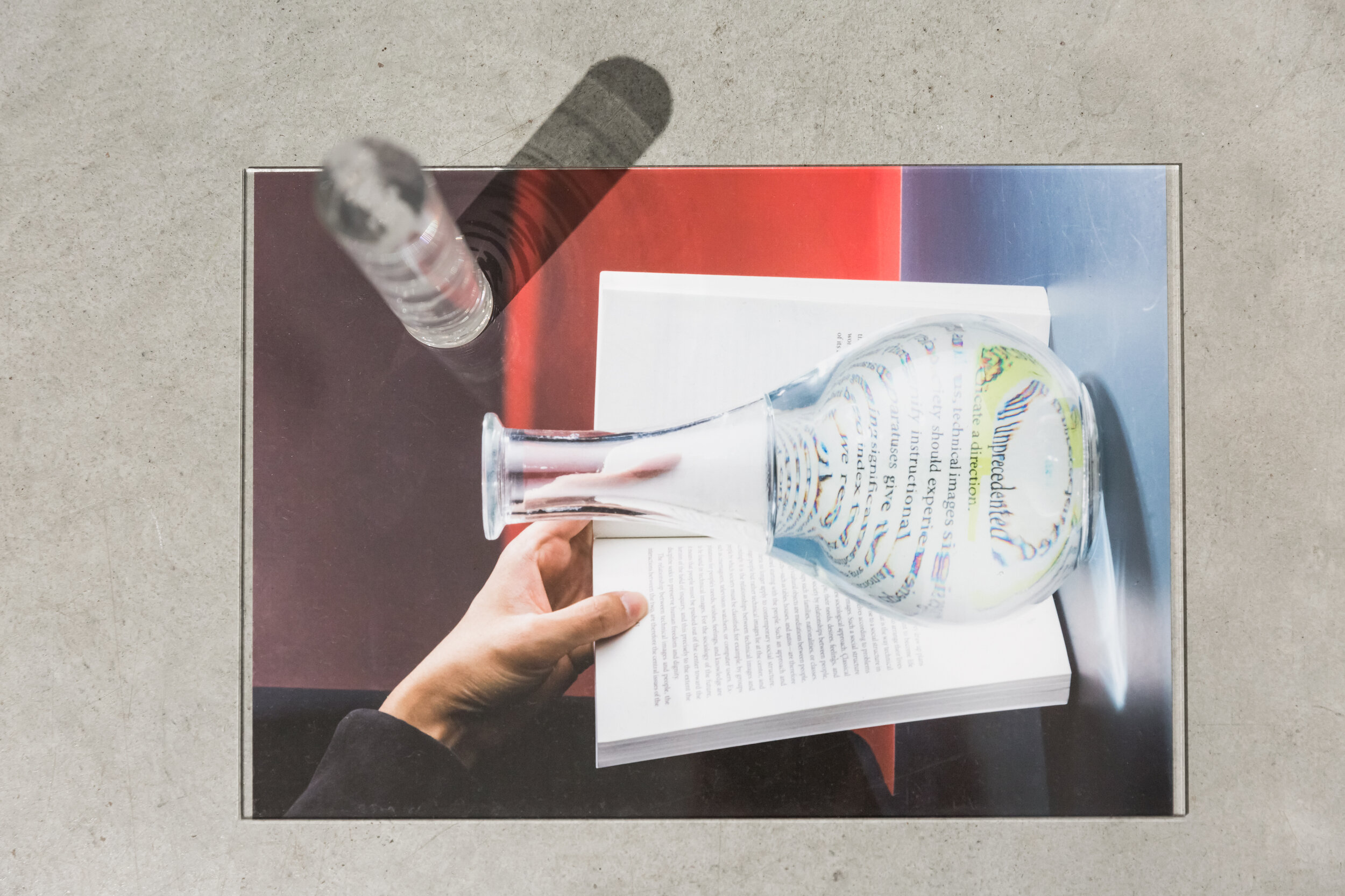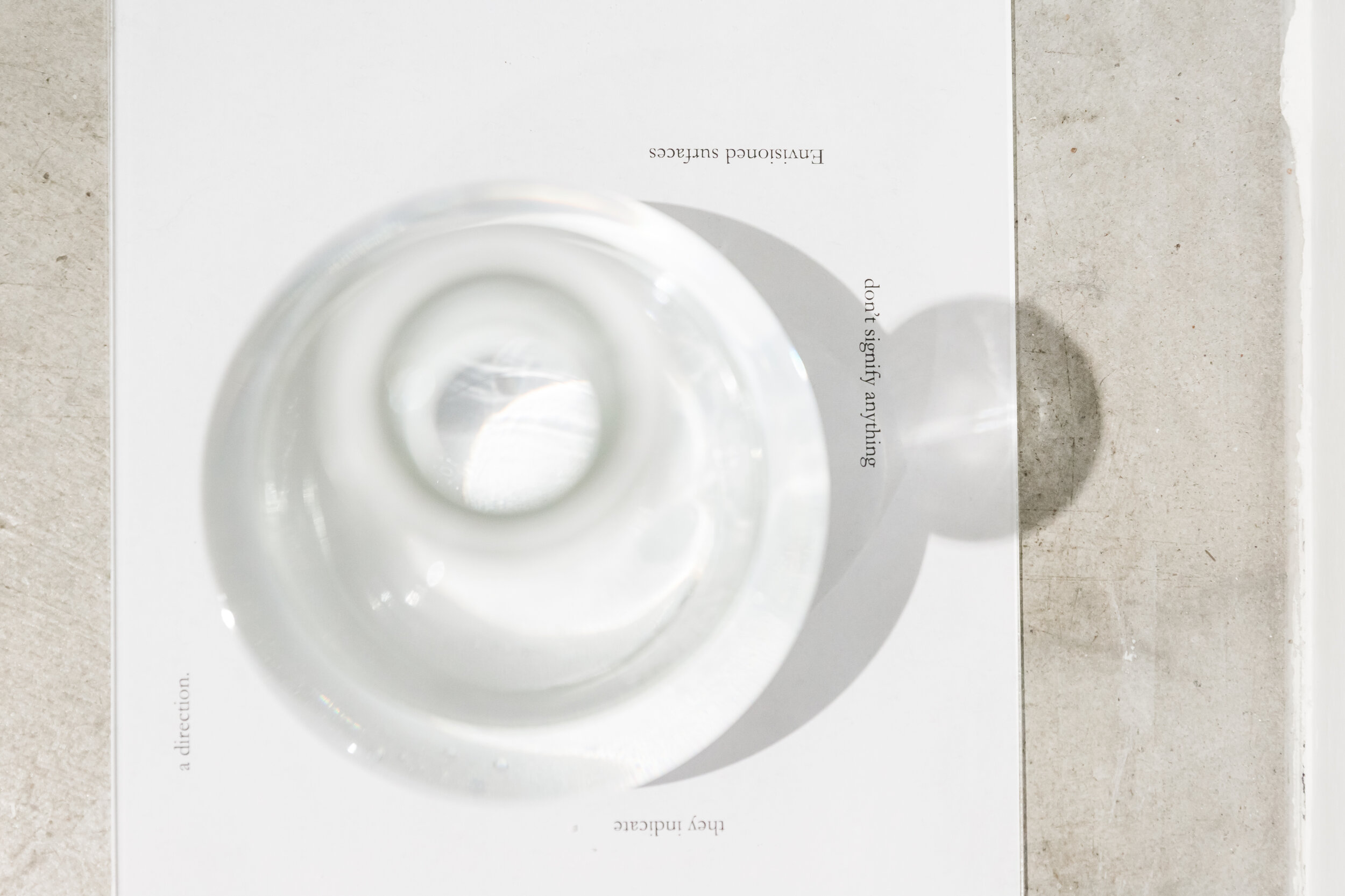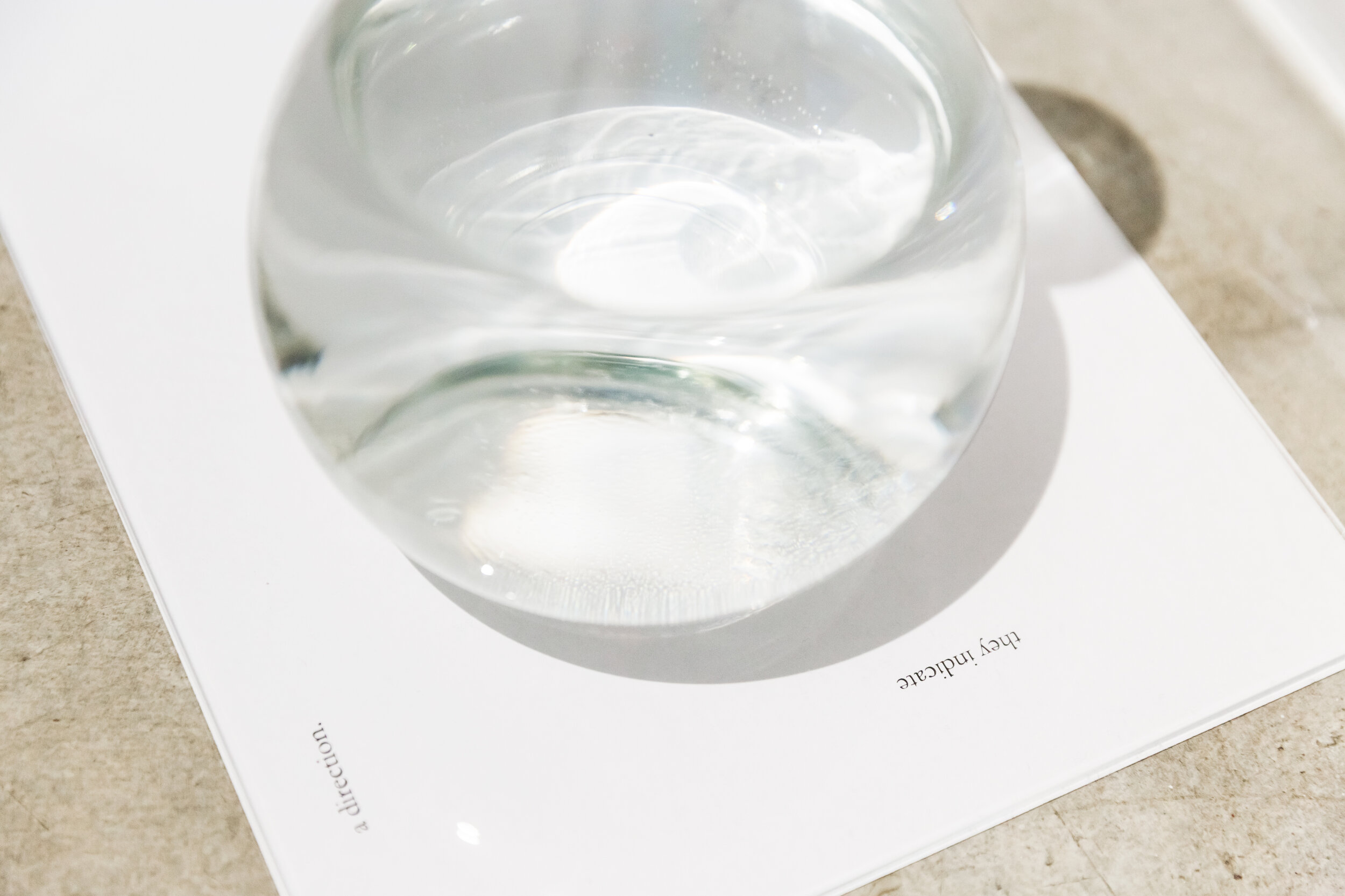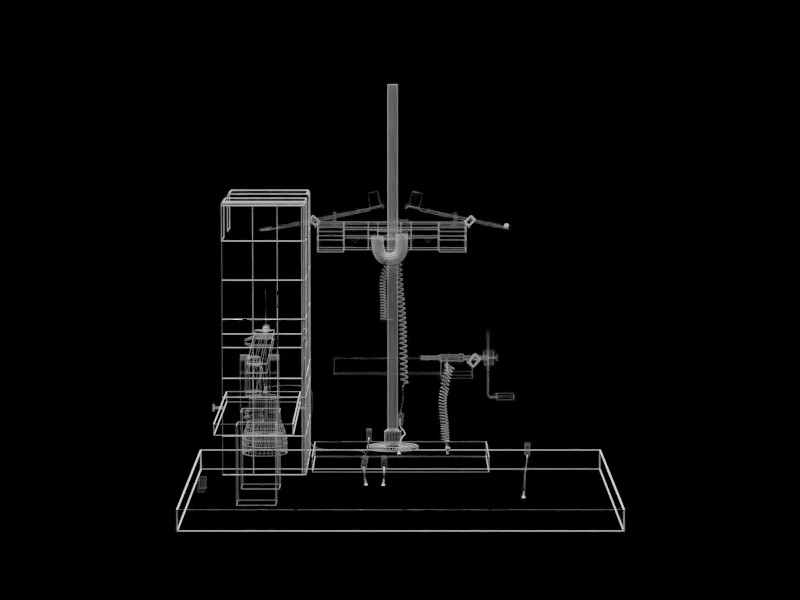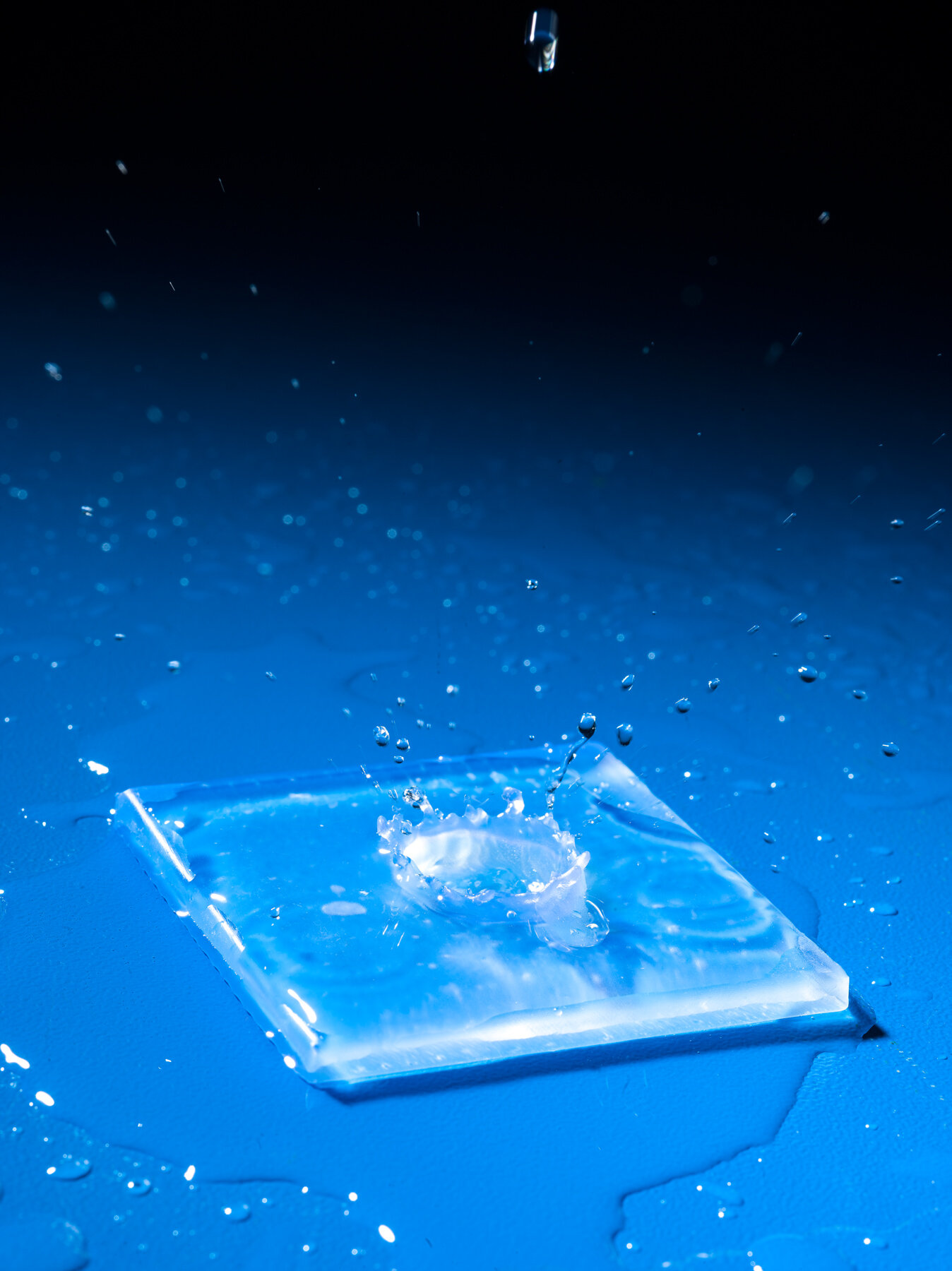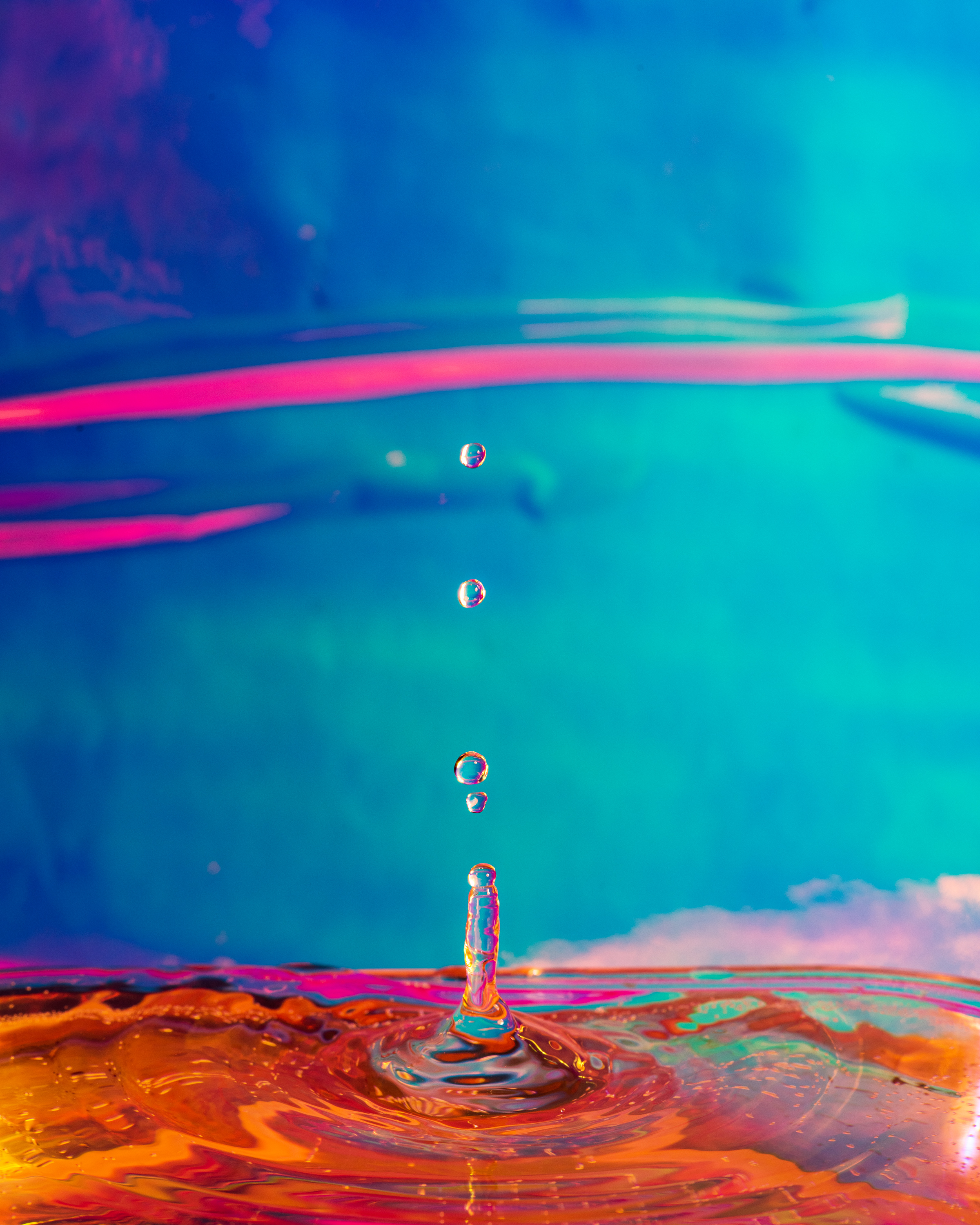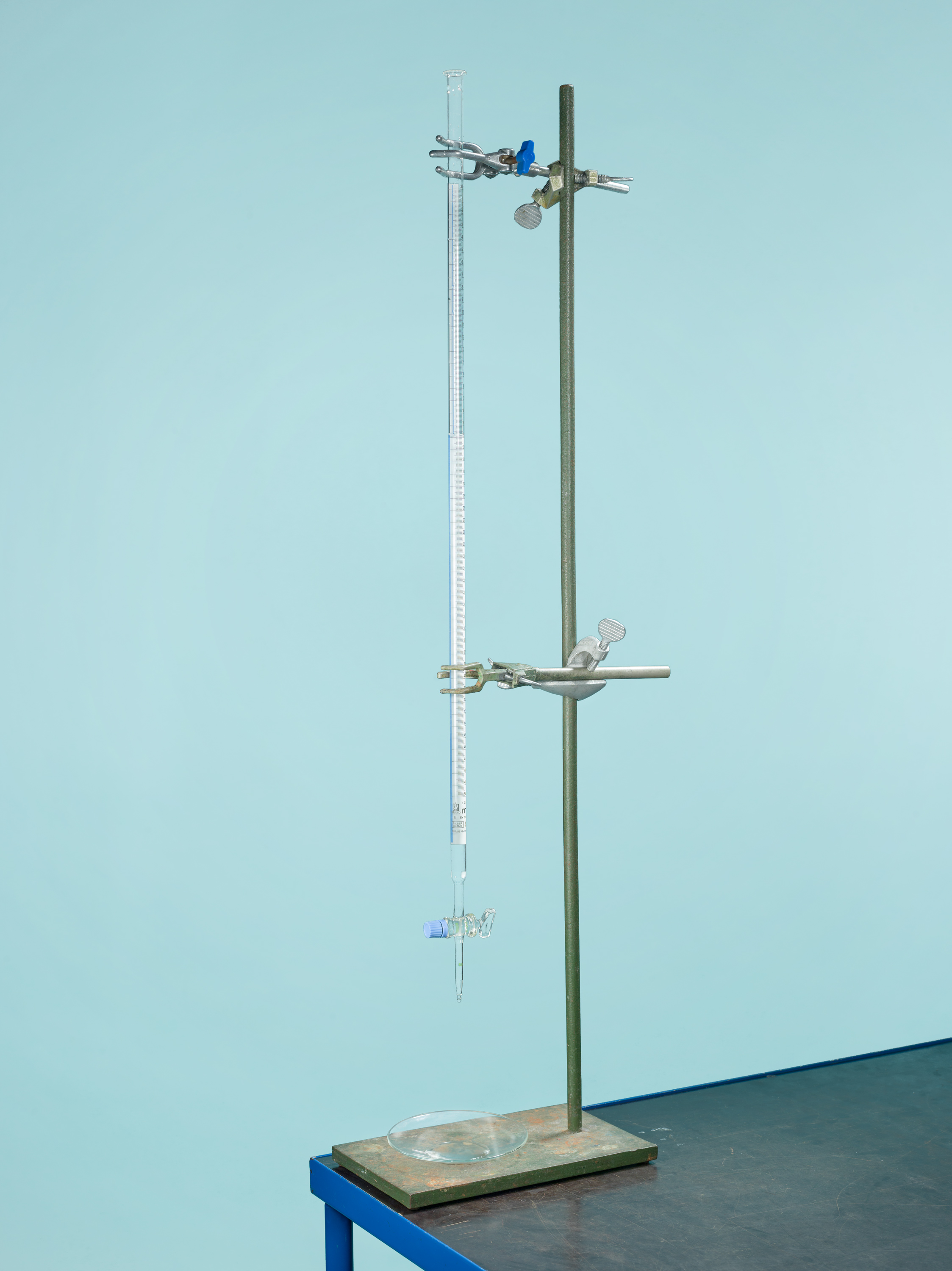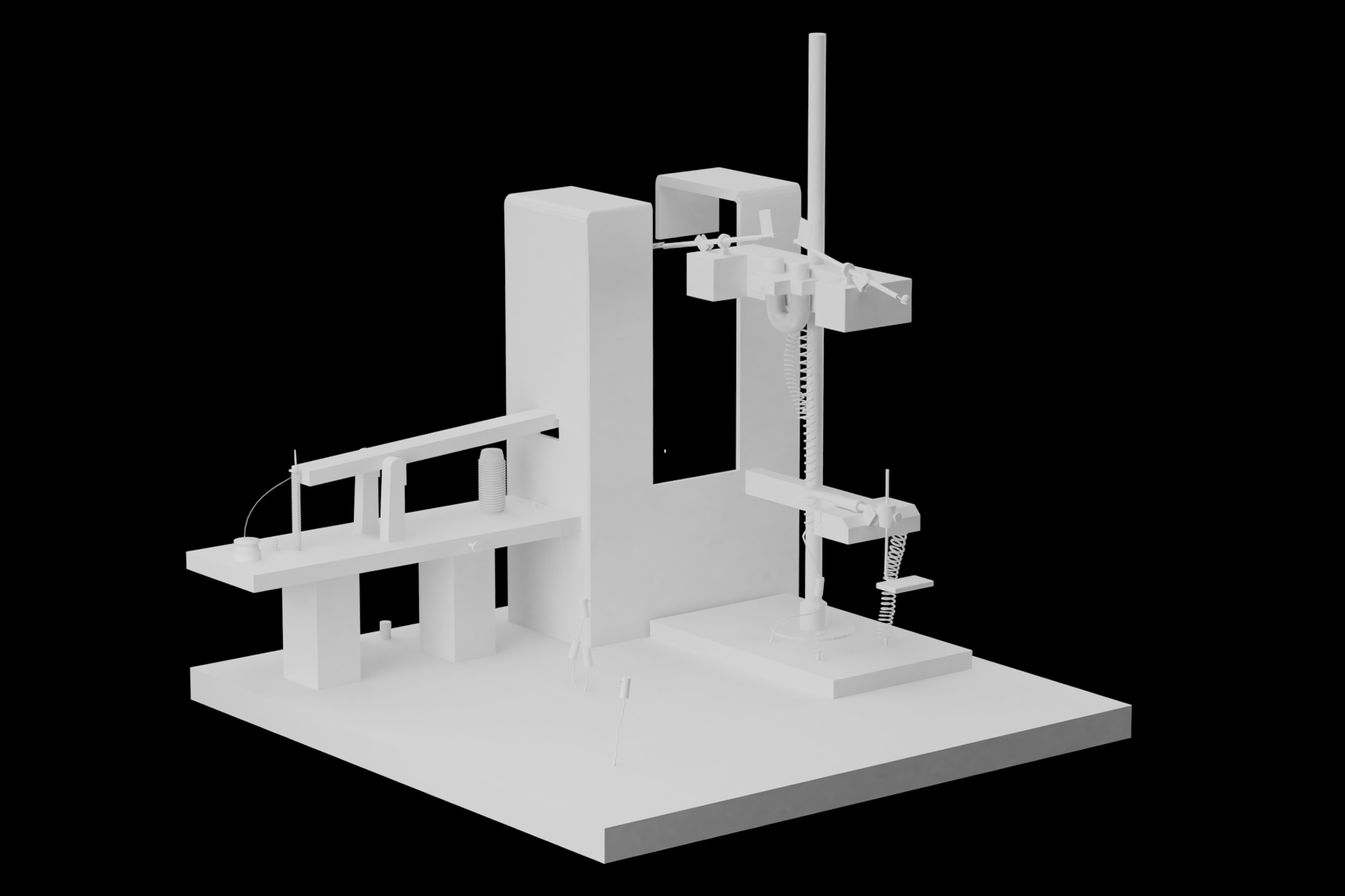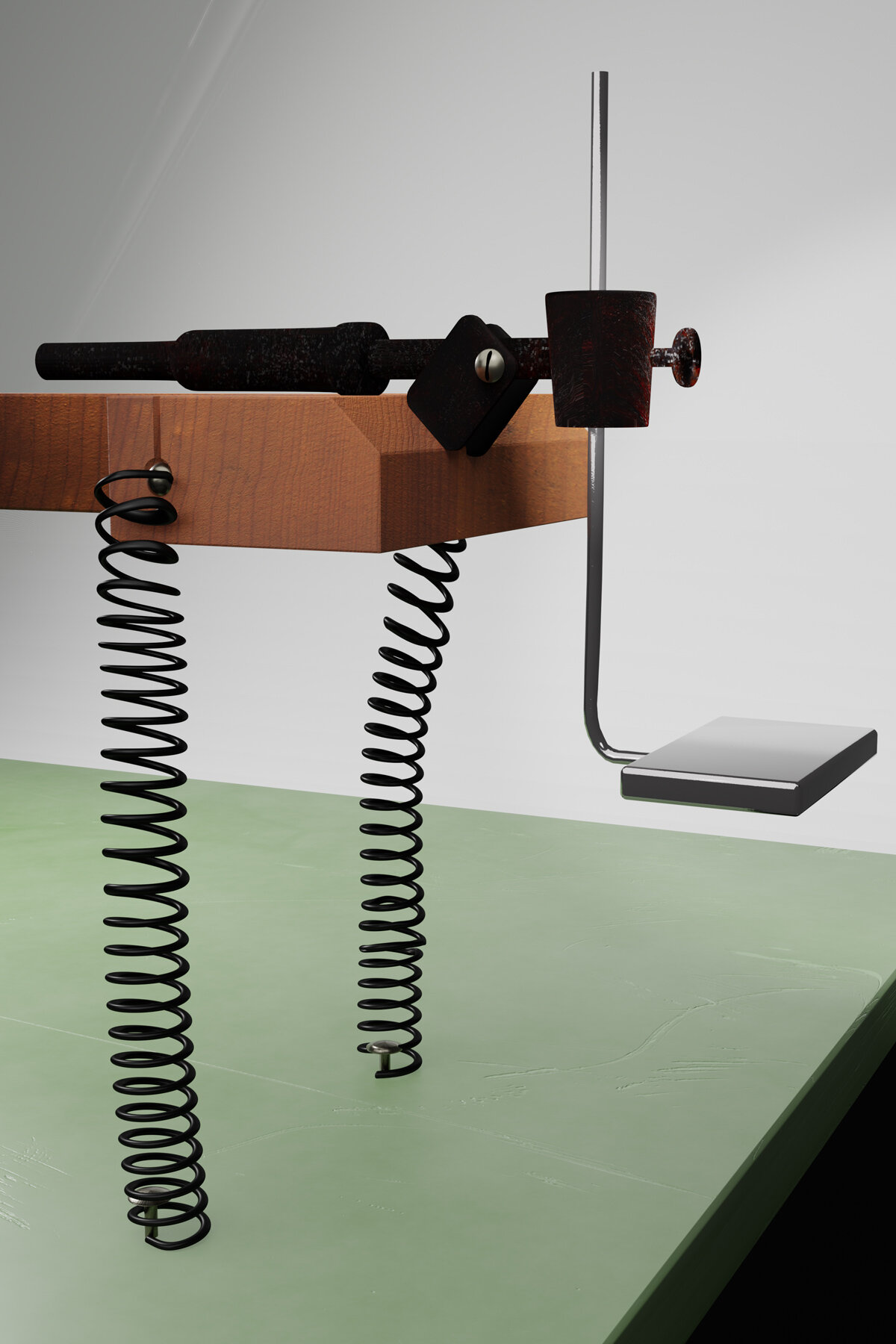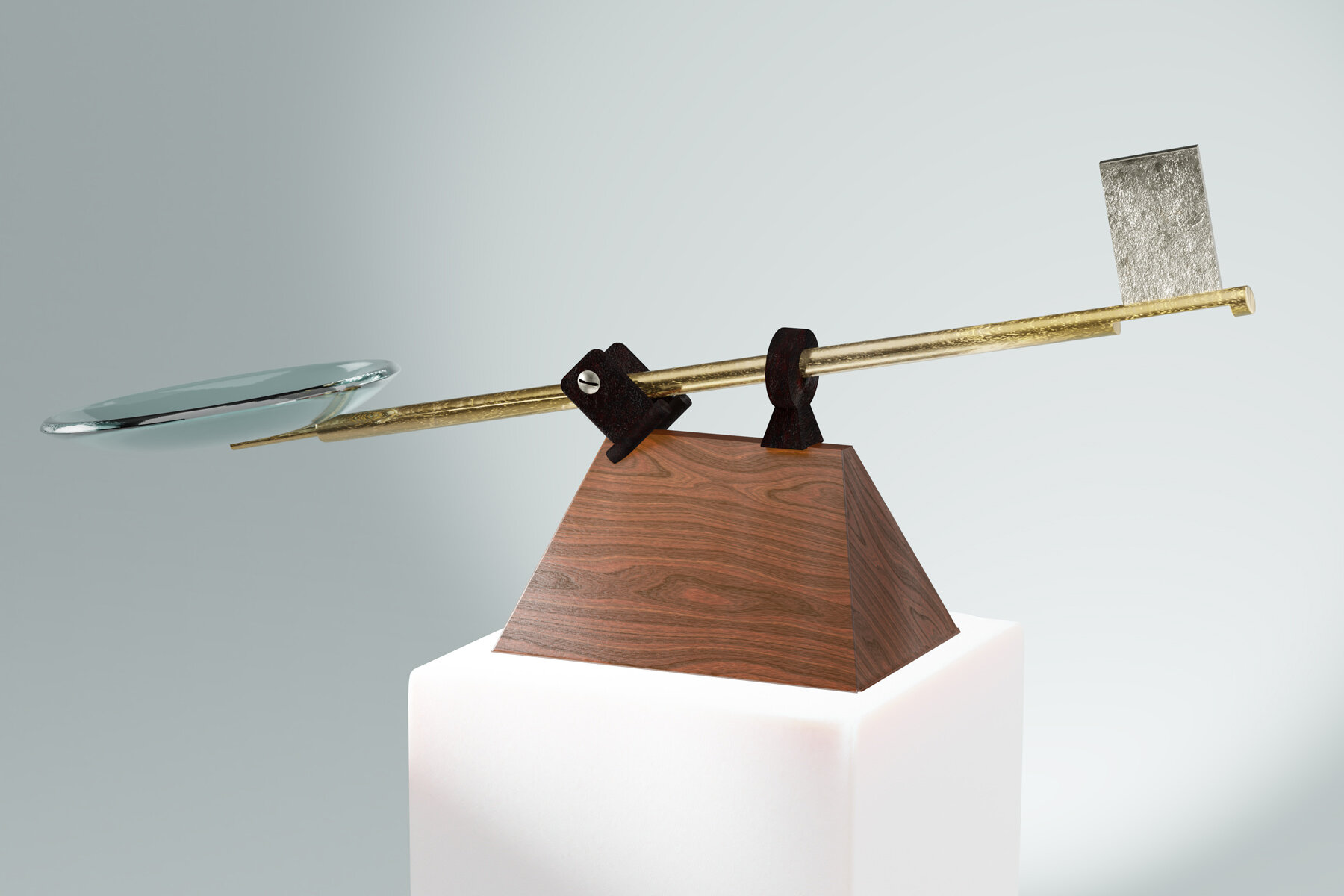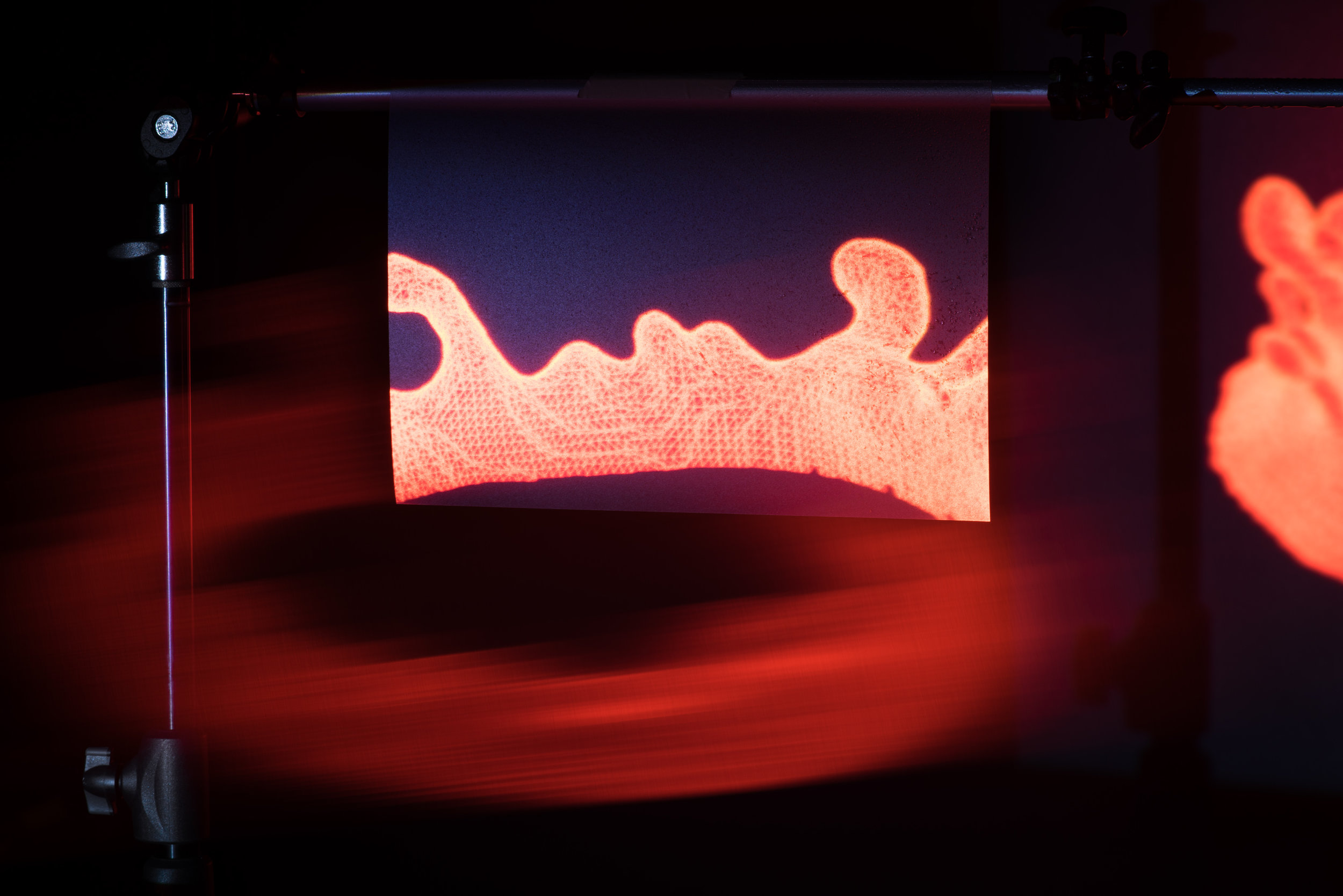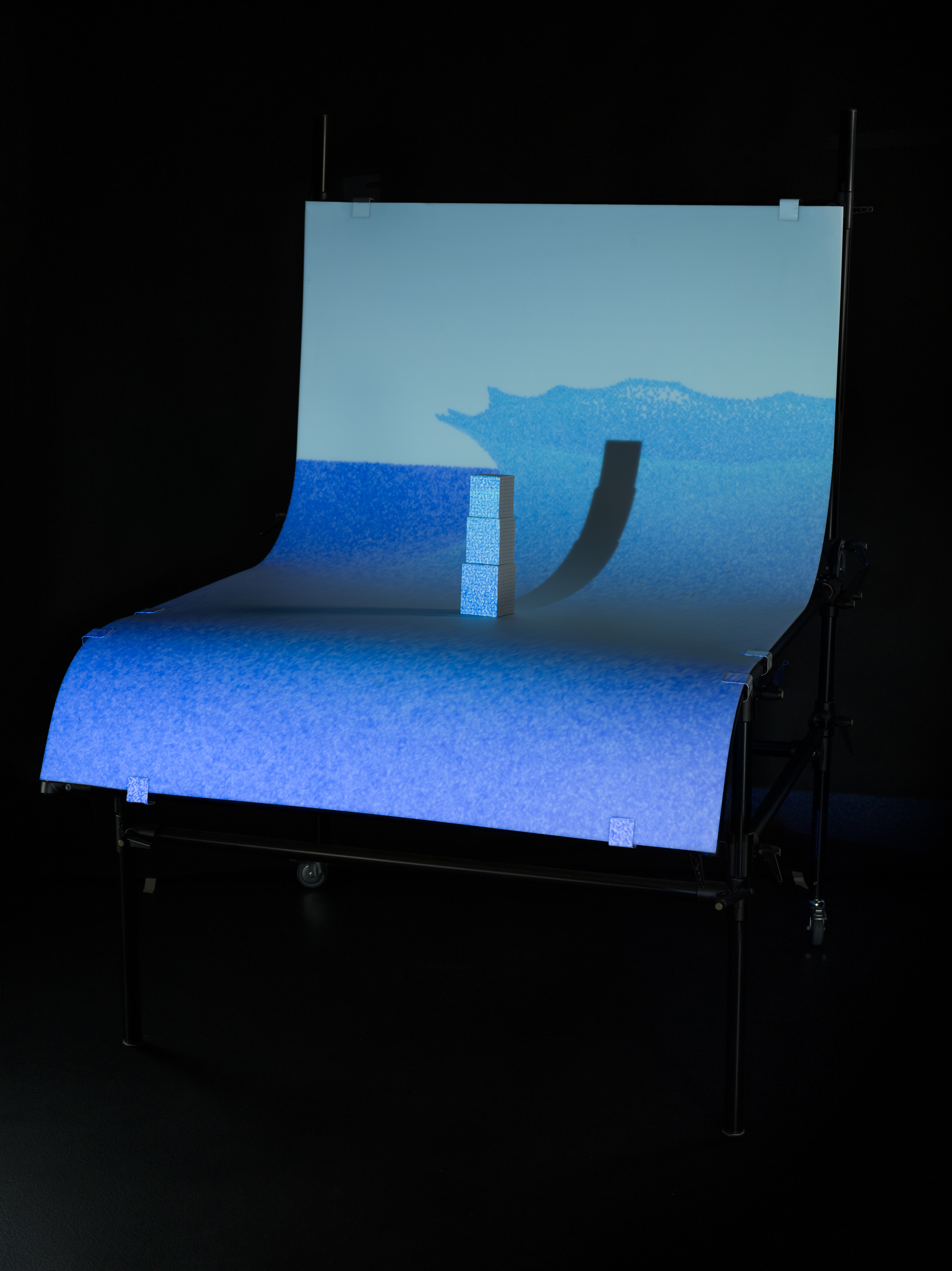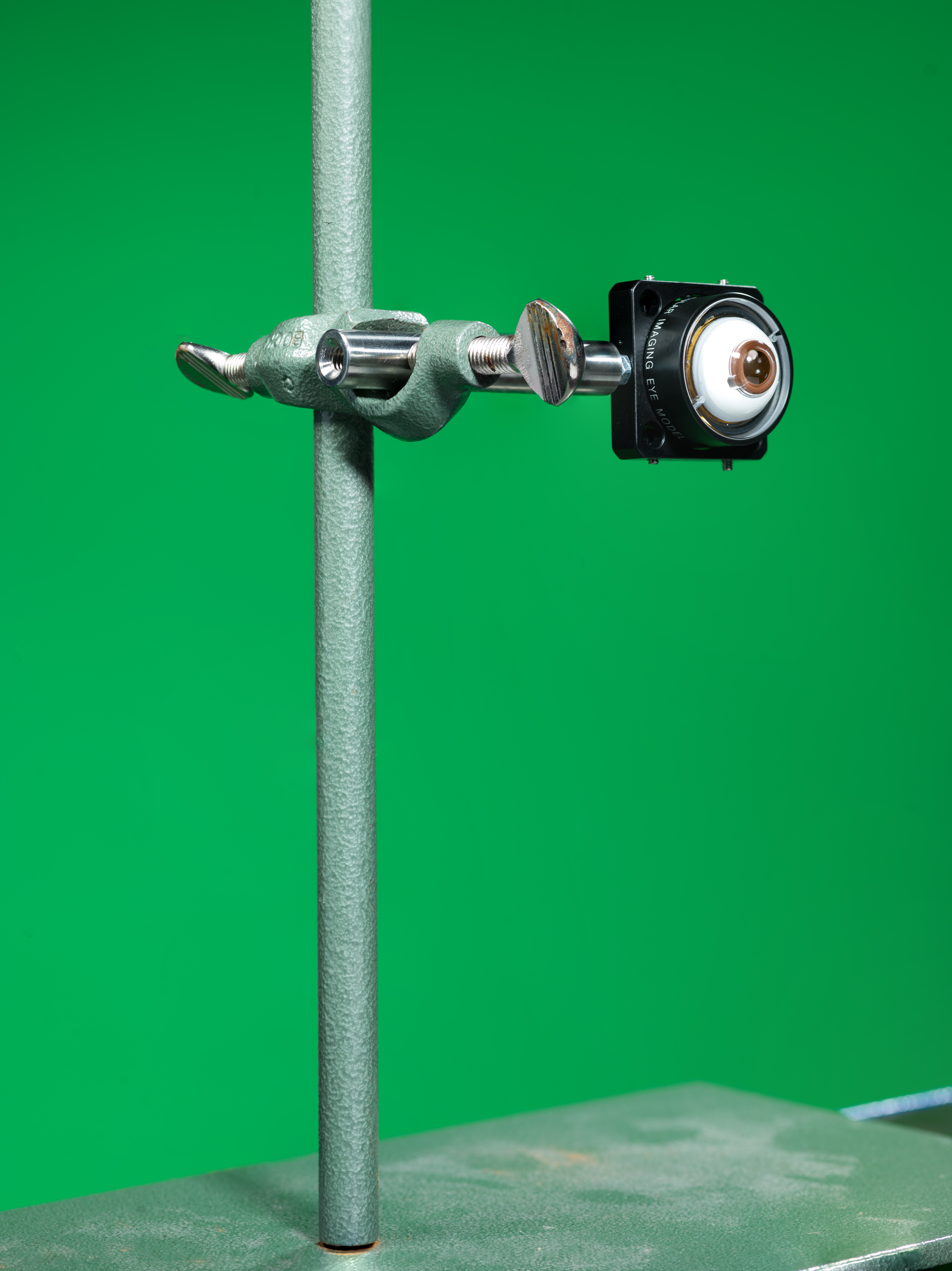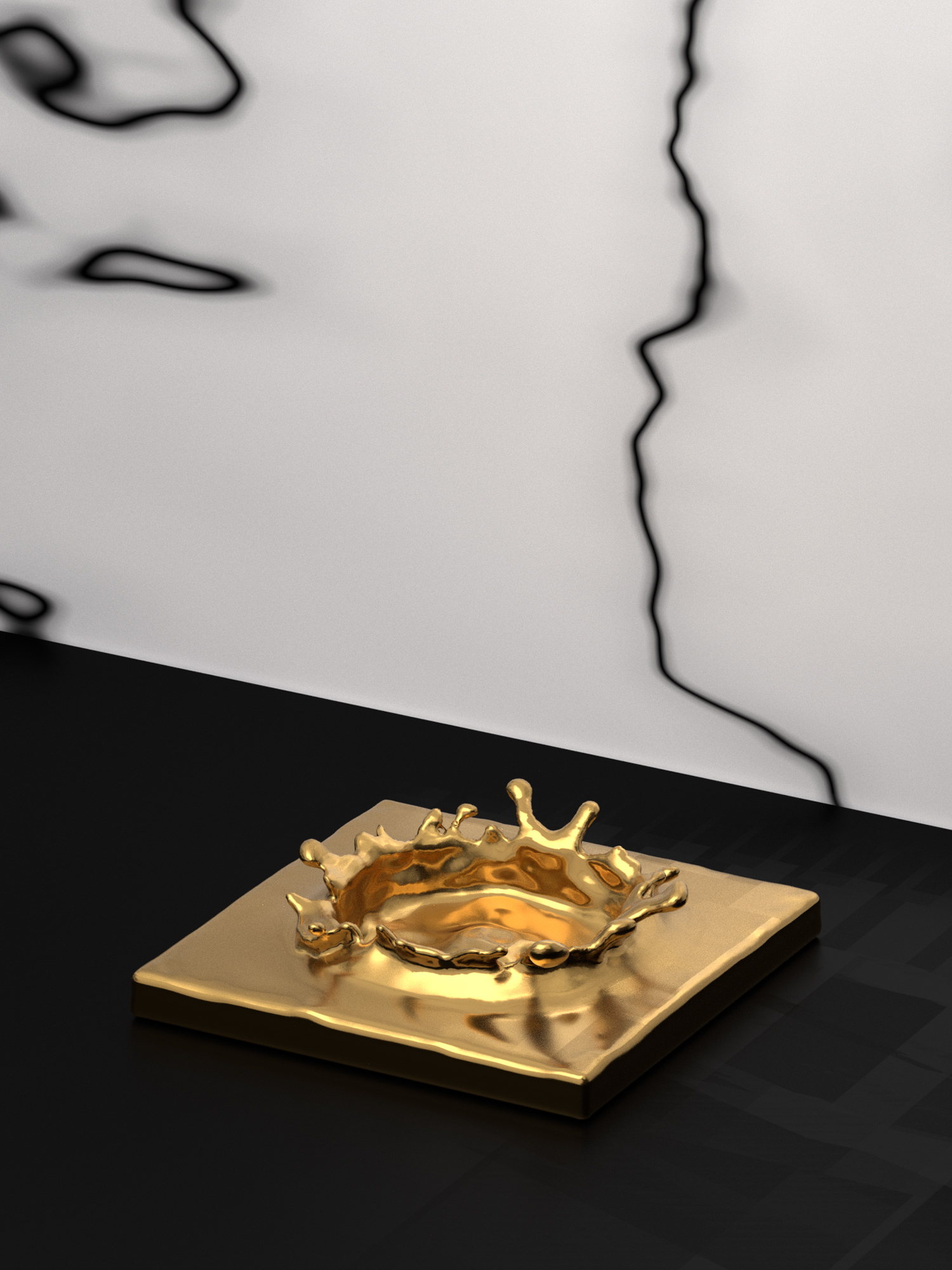The Twinkling of An Eye (2018-)
How do we touch the world through making images? Revisiting seven images of water splashes, the project explores image-making technologies and their entanglement with reality and knowledge.
The title of the project comes from British physicist Arthur Worthington's description of a water splash: the splash of a drop is a transaction which is accomplished in the twinkling of an eye, and it may seem to some that a man who proposes to discourse on the matter for an hour must have lost all sense of proportion. Worthington began studying the complex process of fluid flow before the invention of photography. Worthington devised a meticulous observation procedure to capture the splash of a drop in the pre-photography era, a process too quick for the naked eye to see clearly.
Comprised of electromagnets and mechanical parts, the system will let a drop of definite size fall from a definite height and simultaneously triggered a flash of light of exceedingly short durations. Worthington would rely on the strong flash to 'freeze' the splash long enough for the eye to attend in a dim laboratory. Then, relying on the latent images pressed into his retina, he would draw out the pattern. Finally, he would repeat the procedure and adjust the system to let a drop fall at different heights until he observed the complete process. Illustrated in his findings are series after series of perfectly symmetrical patterns.
On the other hand, consumer-grade 3D modelling software can easily simulate fluid dynamic and create photorealistic renderings of water. Software, such as Blender, uses the Smoothed-particle hydrodynamics (SPH) technique used in astrophysical research to simulate galaxy formation to solve the particle fluid equations.
This project simulates Worthington's well-documented experiment from his book 'Study of A Splash' using 3D modelling software. The resulting images epitomize the displacement of the human eye in knowledge production in the new era of simulation and computational images.
This project is supported by Kone Foundation.


